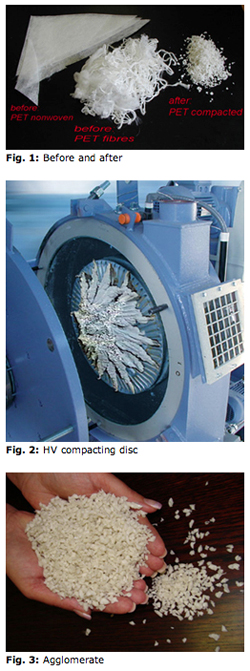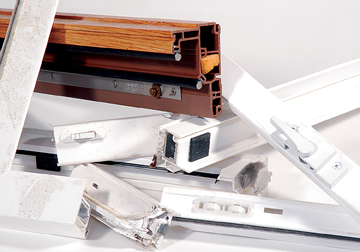Label Remover
SMITHFIELD, RI — For plastic recycling plants, the Herbold Meckesheim Label Remover is more effective than any other machinery for the removal of wraparound polyvinyl chloride (PVC) labels from polyester (PET) bottles.
Until now, removing and separating wraparound labels has been impossible at the prewash stages of bottle recycling and difficult and costly at subsequent stages, but the Label Remover is a game changer. Now, these tightly clinging labels can be removed in a single step, early in the process and without the expense of generating extra steam. The new machine also separates bottles that are stuck together, reducing labor costs for manual separation.
By removing almost all wraparound labels early in the recycling process, the Label Remover also saves money in another way: Down the line at the size-reduction stage, cutting blades will stay sharp longer because they won’t be dulled by many label remnants stuck to bottles.
The Label Remover is available with two different capacities — 4,500 or 8,000 kilograms per hour. Inside each machine, the removal of labels and adhesives from bottles is accomplished through friction between exchangeable rip-off elements bolted to the rotor and exchangeable pins fitted to stator elements. All rip-off elements and pins are made of special wear-resistant steel. The design of the chamber ensures even loads and dwell times as bottles are advanced by the rotor. The chamber has no spaces where bottles might pass through the machine without undergoing full frictional contact, and likewise there are no surfaces to constrict the bottle flow, reducing the possibility of damage to the bottle.
In the fracture-proof, welded-steel housing of the Label Remover are a hinged cover and additional service openings to ensure access when worn parts need replacement. The rotor’s dual self-aligning roller bearings are mounted outside the housing to minimize contamination. Anti-vibration mounting pads are standard.
Herbold Meckesheim USA, a subsidiary of Herbold Meckesheim Germany, designs, manufactures, and installs size-reduction equipment (shredders, granulators, etc.) and wash-line equipment (debalers, separation tanks, friction washers, dryers, compactors, etc.) for the plastics industry, specializing in the recycling of industrial and post-consumer plastics. Components of the company’s systems are designed as modular “building blocks” so that a system can be extended or modified according to the customer’s requirements. As plastics recycling becomes more complicated due to increasing volumes, more contamination, new sorting procedures, automation, newly accepted types of plastic, etc., Herbold anticipates the needs of all plastics recycling facilities, whether they are processing soda bottles or car bumpers.

 The newly founded Stricker PolyRec Company has recently launched a large-scale plant for size-reducing, agglomerating and refining engineering plastics waste.
The newly founded Stricker PolyRec Company has recently launched a large-scale plant for size-reducing, agglomerating and refining engineering plastics waste. Butler-MacDonald uses its new equipment to recover
Butler-MacDonald uses its new equipment to recover